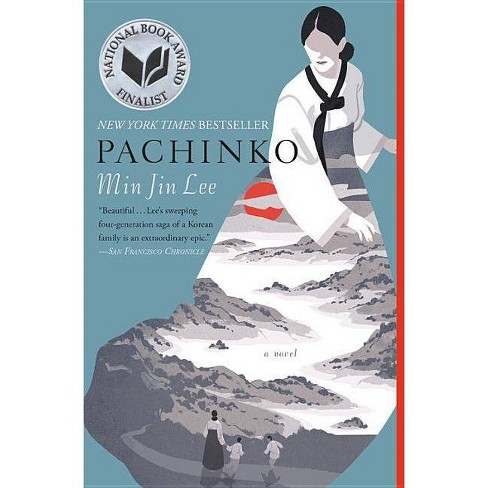Note: If you wish to receive, via e-mail, (1) my weekly newsletter or (2) daily copies of these posts, notify me at [email protected] and indicate which you would like. I promise not to share your e-mail address with anyone. To unsubscribe, send me a follow-up email.
Wednesday
Last week I finished listening to Pachinko, by Korean-American author Min Jin Lee, and was very impressed. In today’s post I turn to the very end (so spoiler alert) because it surprises us with a story of how one of the characters passes along a love of Dickens to a incidental figure, a man who occupies only three pages.. The story caught my eye in part because it captures a key aspect of teaching: we pour out our love of books to people whom, in most instances, we will never see again. I’m also struck by the strangeness of the author ending this lengthy book with this incident. It’s as though the transitory teacher-student relationship is so important that it can encapsulate the major themes of this almost 500-page novel.
Pachinko is the story of four generations of Koreans. It begins shortly before Japan annexes Korea in 1910, and we watch a family suffer through the occupation before moving to Japan. Sunja, the daughter, becomes pregnant after an affair with a married man and conceives a child—Noa—but is saved from ruin when a lodger in the family boarding house marries her. Isak, a Christian pastor, is a kind man who agrees to raise Noa as his own, and they move to Osaka, Japan, where he has a church waiting for him and where they have a second son. Sadly, Isak is jailed when his sexton refuses to worship the emperor, and they both die from the harsh treatment. Sunja and her two sons only survive because Noah’s biological father, now a member of a Korean organized crime syndicate (the Yakuza), takes care of them.
Because Noah is bright, this birth father secretly pays for his education, and he is thriving as an English major in a major Japanese university. He is in love with the great 19th century novelists, especially Dickens and appears to have a bright future. Lee writes,
Even after two years, he was still in thrall with just being at Waseda, with just having a quiet room to read in. Like a man starved, Noa filled his mind, ravenous for good books. He read through Dickens, Thackeray, Hardy, Austen, and Trollope, then moved on to the Continent to read through much of Balzac, Zola, and Flaubert, then fell in love with Tolstoy. His favorite was Goethe; he must have read The Sorrows of Young Werther at least half a dozen times.
At one point, there is a class discussion about George Eliot’s Daniel Derona, a novel in which the protagonist discovers that he is Jewish. The identity theme is relevant to Pachinko, which explores what it means to be Korean but raised in Japan. The teacher observes,
“Here we have a situation where a man does not know his own identity as an outsider. He is like Moses, the infant in Exodus who learns that he is Jewish and not Egyptian—” As [the teacher] was saying this, she glanced at Noa, but he was not aware of it, because he was taking notes.
Noa’s happiness ends when he learns that a member of the Yakuza is financing his life. A sensitive soul, he angrily cuts ties with his mother for accepting the help, drops out of school, and disappears. Years later his mother discovers that he has been working as a bookkeeper for a Pachinko operation. But when she tracks him down—by this time he is married with children and is passing himself off as Japanese—he commits suicide.
So cut to the novel’s end, when Sunja is visiting the grave of her husband Isak. The year is now 1989, and from a casual conversation with the groundskeeper, she discovers that, unknown to her, Noa has been visiting Isak’s grave faithfully for years. During that time he has made friends with this man, even offering to send him to school. And while the groundskeeper has rejected the idea, he has read the copies of Dickens novels that Noa brought him. When Sunja informs him that Noa is dead, he replies,
I am very sad to hear that, Boku-san. Truly, I am. I’d been hoping to tell him that after I finished all the books he’d brought me, I bought more of my own. I have read through all of Mr. Dickens’s books in translations, but my favorite is the first one he gave me, David Copperfield. I admire David.
So Noa, whose great potential seems to have been wasted—a pachinko bookkeeper, after all, is not a university professor—has passed along a precious gift in a chance encounter. And that seems to be one of the great themes of the book: despite all the suffering, tragedy and death, there are these chance intersections of human lives, never planned, that lead to luminous moments.
